So you’ve decided to take some training with your dog – awesome! It’s one of the best investments a dog owner can make. But making that decision is the easy part. Now comes the hard part – choosing a trainer. After all, dog training isn’t cheap and you don’t want to waste your money or your time. But how do you know if a dog trainer is good? Here are a few tips to choosing a good dog trainer.
Related: Top Rated Dog Training Courses
#1 – Look at certification
Technically, a person needs no special schooling or credentials to start up a business and start training dogs. However, when choosing a dog trainer, it’s best to look for those that have taken the time and money to become a true professional through schooling and/or certification. Look for those with college degrees in animal behavior or similar fields, and dog trainers that are certified through well-known associations, such as the Certification Council For Professional Dog Trainers (CPDT).
#2 – Does the trainer participate in continuing education?
Dog training is a profession that is constantly changing. New methods and ways of teaching dogs are being discovered all the time. So a good dog trainer is staying abreast of new techniques by watching DVDs, taking classes themselves, and attending seminars and conferences.

#3 – Can the trainer explain their methodology?
Be sure to ask lots of questions about the type of training method(s) they use and why. A good dog trainer will be able to explain what they use and why in a clear way that you (the “layman”) can understand. If the dog trainer seems unsure about their own methods, why should you have confidence in them?
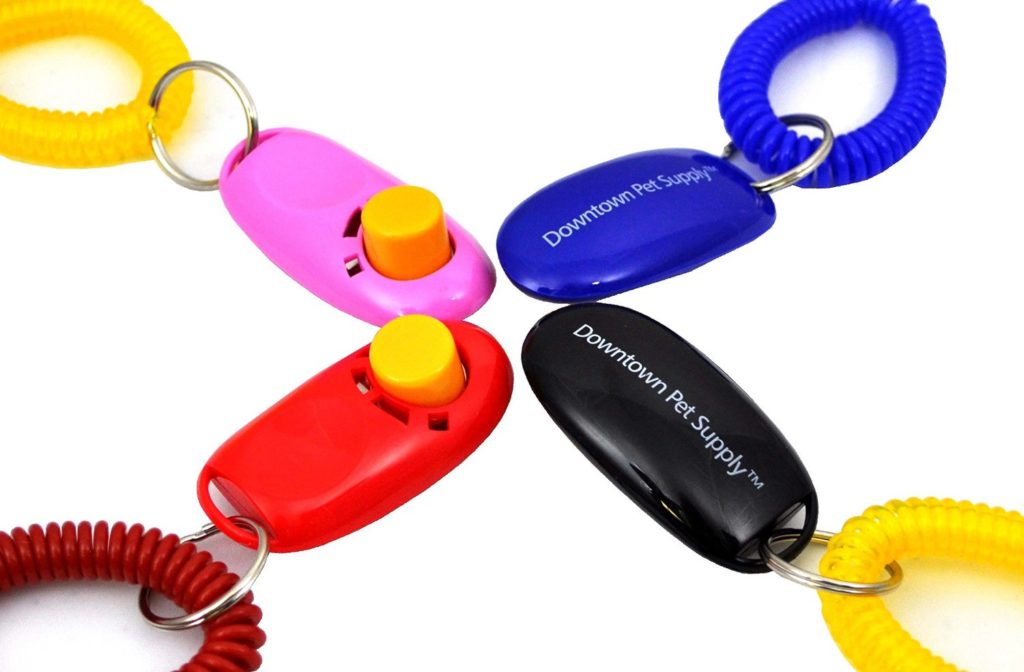
#4 – Make sure they use methods you’re comfortable with
Aside from understanding their methods, you need to be comfortable with them. Be brave here. Tell the dog trainer exactly what you will and won’t do with your dog. Do this before signing a contract. No point in paying for training you won’t do.
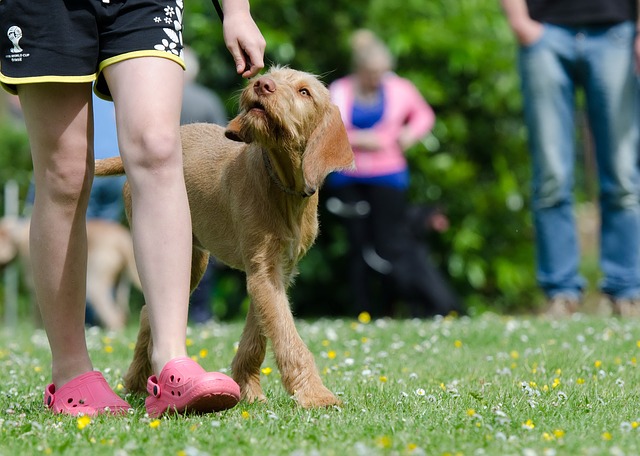
#5 – Do some research yourself
Picking a good dog trainer means you should have some knowledge on the subject. Look at the latest research on canine learning and make sure the dog trainer you choose isn’t using outdated and disproved research (such as dominance theory).
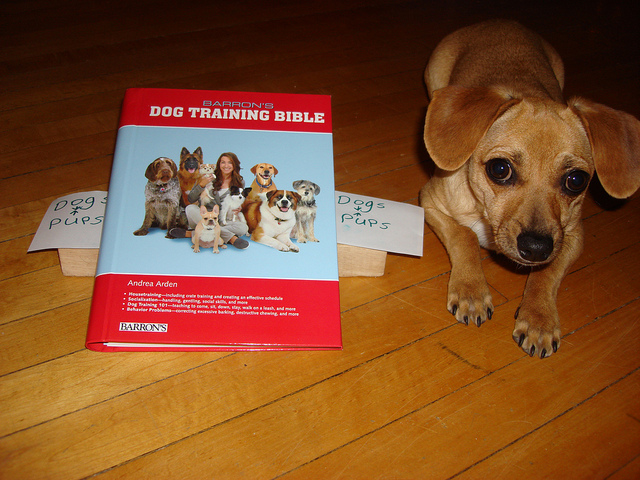
#6 – Ask to watch a lesson or class first
Another great way to assess a trainer is to ask them if you can watch a lesson or class they are teaching before signing on yourself. I’ve done this myself a few times, and saved a lot of money. Not only can you assess the trainer, but also the class itself – is it the type of behaviors you need to be working on? Is the environment one your dog can learn in?
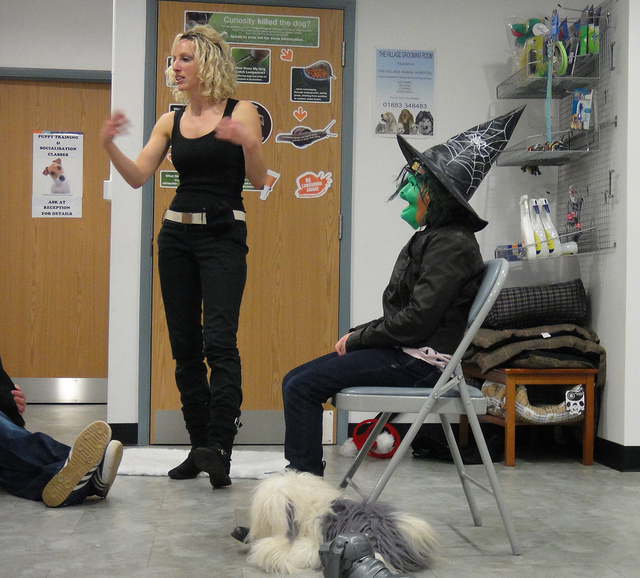
#7 – Look for a trainer that practices what they teach
For example, does the agility instructor actually train and compete with their own dogs? Or did in the past? If not, you may want to look for a trainer with more experience. Same goes with how they treat their own dogs. I knew a place that preached positive reinforcement, but outside of class the trainers were using correction on their own dogs. Skip those trainers.
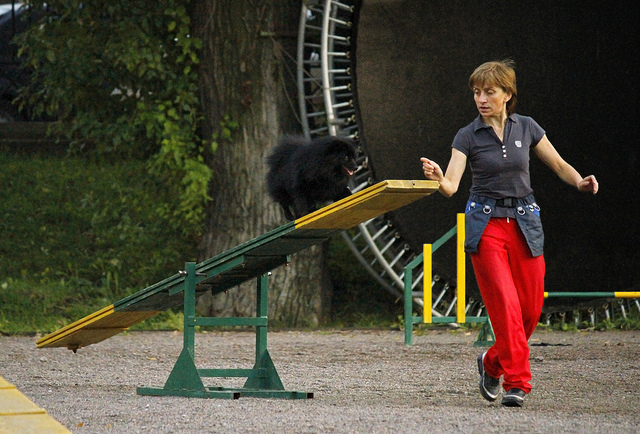
#8 – Go with your gut
Finally, trust your instincts. If you feel that this trainer isn’t for you, just pass. Or maybe it’s not you, but your dog. If your normally friendly dog is very reserved around this particular trainer, you may want to meet with a few others. If your dog is uncomfortable, training will be harder.
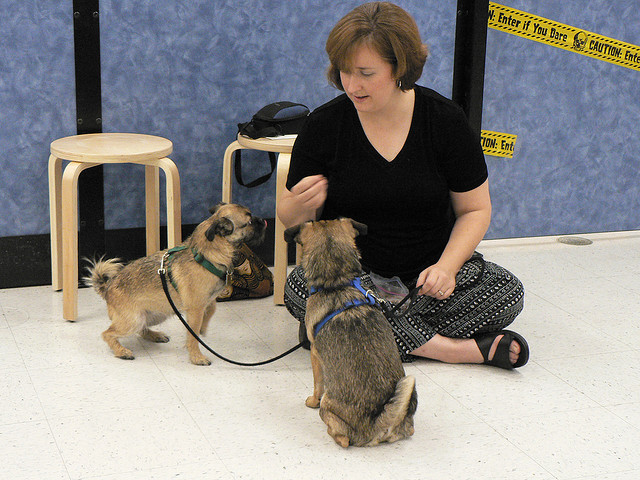
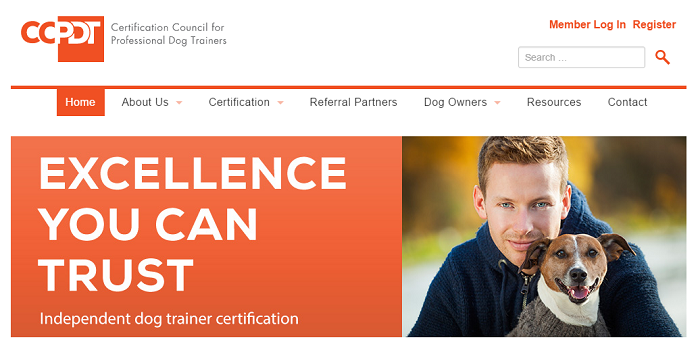
 Toledo, United States.
Toledo, United States.
